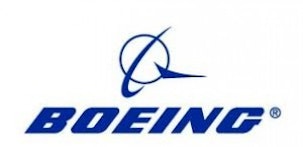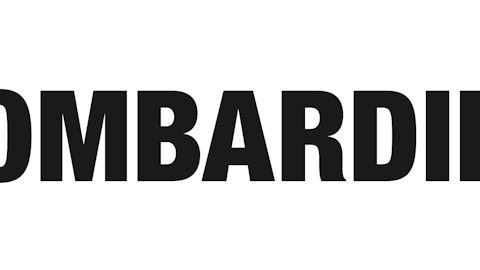The Boeing Company (NYSE:BA) stock dropped more than 7% on Friday when news broke that a 787 Dreamliner operated by Ethiopian Airlines caught fire Friday while parked on the tarmac at London’s Heathrow Airport. In an unrelated incident, another 787 operated by Thomson Airways headed to Orlando, Fla., had to return to Manchester after unspecified component malfunctions. In both incidents, fortunately no one was injured. The only harm was to stockholders’ portfolios, as The Boeing Company (NYSE:BA) experienced the biggest single-day loss in nearly two years.

The malfunctions, particularly the fire, instantly call to mind The Boeing Company (NYSE:BA)’s previous problems with the Dreamliner. After a severely delayed launch of the technologically advanced passenger jet, a series of glitches and small technical problems culminated last January as two Dreamliners caught fire, causing regulators worldwide to ground the entire fleet of Dreamliners. In those instances, the problem was a lithium-ion battery that could overheat, start to smoke, and eventually combust. The Boeing Company (NYSE:BA) provided a fix that saw the Dreamliner fleet back in operation in May, and Friday’s sell-off might have indicated investors’ doubts that the problem was truly solved.
However, the location of the fire on the latest plane indicates that the lithium-ion battery was not responsible. An investigation by U.K. aviation officials and The Boeing Company (NYSE:BA) engineers is ongoing, but for now the good news is that airline customers don’t appear to believe that these malfunctions are severe enough to ground the fleet. Ethiopian Airlines plans to continue running its other three 787s, and major customers including United Continental Holdings Inc (NYSE:UAL) and All Nippon Airways have confirmed that their own 787 fleets remain in operation, pending the results of the investigation.
So does Friday’s sell-off provide a good entry point into the stock? I don’t think so. Friday’s events illustrate a fundamental truth about the company: There’s no such thing as a good surprise for The Boeing Company (NYSE:BA).
The factory, not the sky, is the limit
The problem with Boeing stock is that despite a massive order backlog of $392 billion, almost 5 times annual sales, the company can’t meet demand fast enough. Orders don’t automatically translate to sales at Boeing, because the company doesn’t get paid until and unless it actually delivers the plane. This reality makes the production line, not the sales team, the real cap on Boeing’s growth. In most industries, meeting demand is a pretty straightforward matter, but Boeing is manufacturing perhaps the single most complex and demanding product in human history. Building more planes fast enough to meet investor expectations simply may not be logistically possible.
For example, the 787 Dreamliner is the fastest-selling plane ever, if you just look at orders. But again, Boeing doesn’t get paid until it delivers the planes, and it’s delivered only 66 of them. With around 900 orders, at the current rate of just seven planes built per month, it would take Boeing more than a decade to deliver all these planes to customers. Even the 737 Next Generation program, which at 38 planes per month is Boeing’s fastest production pipeline, would take more than four years to deliver every order currently in the backlog.
These rates will increase as the company gains experience building the planes, but real cash flow, and therefore real upside potential, is very much limited by how quickly the company can safely manufacture and deliver these planes. And projected production ramp-ups don’t always materialize as planned. For example, Boeing has repeatedly announced plans to increase 787 production to 10 per month by the end of 2013. It was reported Thursday, however, that Boeing’s South Carolina plant, which is supposed to contribute three Dreamliners per month, is turning out only half that amount and won’t be able to hit its total this year.
The takeaway is that Boeing just isn’t a company that can really perform beyond expectations. Projected production rate increases are basically best-case scenarios, and any outperformance in this area will be pretty modest. While the upside potential is limited, the downside potential is vast. Another grounding of the Dreamliner fleet could stall investor returns for many years, while an even greater bad surprise — say, a mistake in the manufacturing process that leads to a fatal crash — could literally force Boeing back to the drawing board on a product and crush the stock.
As far as dividend investing goes, Boeing also doesn’t have anything to get excited about. The yield is under 2%, below the S&P 500 average, and the annual growth rate of the dividend has been in the low single digits in recent years. While Boeing stock has been outperforming the S&P 500 so far this year, I look at the stock and see meager dividends and a strict capacity constraint on potential growth, nothing that could compensate me for taking on the huge risks in buying this stock.
The article Boeing Dreamliner Catches Fire and Boeing Stock Plunges originally appeared on Fool.com is written by Daniel Ferry.
Fool contributor Daniel Ferry and The Motley Fool have no position in any of the stocks mentioned.
Copyright © 1995 – 2013 The Motley Fool, LLC. All rights reserved. The Motley Fool has a disclosure policy.



